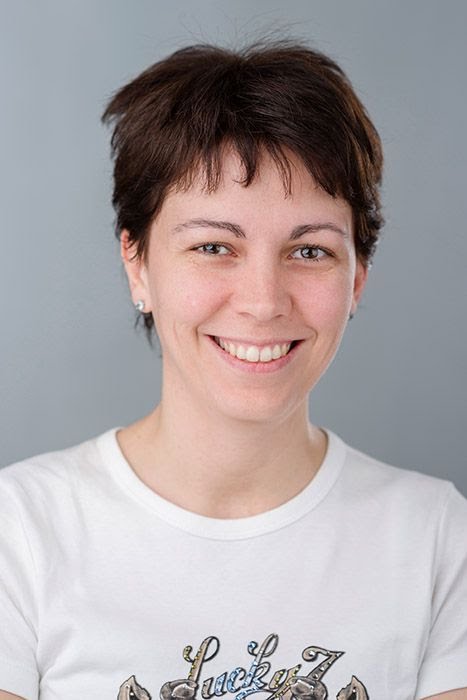Studying at the University of Verona
Here you can find information on the organisational aspects of the Programme, lecture timetables, learning activities and useful contact details for your time at the University, from enrolment to graduation.
Academic calendar
The academic calendar shows the deadlines and scheduled events that are relevant to students, teaching and technical-administrative staff of the University. Public holidays and University closures are also indicated. The academic year normally begins on 1 October each year and ends on 30 September of the following year.
Course calendar
The Academic Calendar sets out the degree programme lecture and exam timetables, as well as the relevant university closure dates..
| Period | From | To |
|---|---|---|
| primo semestre (lauree) | Sep 20, 2021 | Jan 14, 2022 |
| Periodo generico | Oct 1, 2021 | May 31, 2022 |
| secondo semestre (lauree) | Feb 21, 2022 | Jun 1, 2022 |
| Session | From | To |
|---|---|---|
| sessione invernale | Jan 17, 2022 | Feb 18, 2022 |
| sessione estiva | Jun 6, 2022 | Jul 15, 2022 |
| sessione autunnale | Aug 22, 2022 | Sep 16, 2022 |
| Session | From | To |
|---|---|---|
| sessione autunnale (validità a.a. 2020/2021) | Dec 6, 2021 | Dec 10, 2021 |
| sessione invernale (validità a.a. 2020/2021) | Apr 6, 2022 | Apr 8, 2022 |
| sessione estiva (validità a.a. 2021/2022) | Sep 5, 2022 | Sep 6, 2022 |
Exam calendar
Exam dates and rounds are managed by the relevant Economics Teaching and Student Services Unit.
To view all the exam sessions available, please use the Exam dashboard on ESSE3.
If you forgot your login details or have problems logging in, please contact the relevant IT HelpDesk, or check the login details recovery web page.
Should you have any doubts or questions, please check the Enrollment FAQs
Academic staff
 daniela.pianezzi@univr.it
daniela.pianezzi@univr.it

Vannucci Virginia
 virginia.vannucci@univr.it
virginia.vannucci@univr.it
Study Plan
The Study Plan includes all modules, teaching and learning activities that each student will need to undertake during their time at the University.
Please select your Study Plan based on your enrollment year.
1° Year
| Modules | Credits | TAF | SSD |
|---|
2° Year activated in the A.Y. 2022/2023
| Modules | Credits | TAF | SSD |
|---|
3° Year activated in the A.Y. 2023/2024
| Modules | Credits | TAF | SSD |
|---|
1 MODULE TO BE CHOSEN BETWEEN THE FOLLOWING1 MODULE TO BE CHOSEN BETWEEN THE FOLLOWING| Modules | Credits | TAF | SSD |
|---|
| Modules | Credits | TAF | SSD |
|---|
| Modules | Credits | TAF | SSD |
|---|
1 MODULE TO BE CHOSEN BETWEEN THE FOLLOWING1 MODULE TO BE CHOSEN BETWEEN THE FOLLOWING| Modules | Credits | TAF | SSD |
|---|
Legend | Type of training activity (TTA)
TAF (Type of Educational Activity) All courses and activities are classified into different types of educational activities, indicated by a letter.
Private law (2021/2022)
Teaching code
4S02458
Academic staff
Coordinator
Credits
9
Language
Italian
Scientific Disciplinary Sector (SSD)
IUS/01 - PRIVATE LAW
Period
secondo semestre (lauree) dal Feb 21, 2022 al Jun 1, 2022.
Location
VERONA
Learning outcomes
The course will provide students with an overview of principles and rules that govern private relationships – with special attention on patrimonial aspects – in view of the development of skills necessary to address questions in the field of Private Law. During the course professor and students will also analyse some specific cases together focusing on legal terminology regarding Private Law. Upon completion of the course, students are expected to be able to make use of the basic notions and rules that govern relationships between private individuals and entities, with particular attention to business relationships.
Program
The methodology that will be applied consists of lectures, which will be largely based on the presentation of cases and legal questions and the identification of proper solutions.
Issues that will be covered include:
Private law in general - Personal status and relationships - Legal facts and legal acts - Physical persons and legal persons - Assets and rights in rem - Law of obligations - Contracts in general - Individual contracts - Consumer contracts - Non-contractual sources of obligations - Torts - Family law in general - Marriage - Parenthood - Wills and trusts - Donations - Enforcement of rights.
Books recommended (alternatively):
A. TRABUCCHI, Istituzioni di diritto civile, 50^ ed., Wolters Kluwer CEDAM, 2022 (con esclusione delle parti dedicate alle procedure concorsuali [Capo IX, Sez. III], ai titoli di credito e alla circolazione dei valori mobiliari [Capo XII, Sez. IV], alla proprietà intellettuale e alla concorrenza [Capo XIII]);
A. TORRENTE – P. SCHLESINGER, Manuale di diritto privato, 25^ ed., Giuffrè, 2021 (con esclusione delle parti dedicate ai titoli di credito, cambiale e assegni [Capitolo LI, Lett. D), Capitolo LII e Capitolo LIII], nonché all'impresa, alle società e alle procedure concorsuali [da Capitolo LVI a Capitolo LXIV]).
We also recommend the latest edition of a Civil Code which includes, in addition to the main civil laws, the texts of the Constitution and the Treaties of the European Union:
R. PUCELLA, Codice civile. Per la didattica e lo studio, Giappichelli Editore
A. DI MAJO, Codice civile, Giuffrè Editore
G. DE NOVA, Codice civile e leggi collegate, Zanichelli Editore
G. PERLINGIERI – M. ANGELONE, Codice civile, Edizioni Scientifiche Italiane
Examination Methods
The exam consists of 30 quiz with multiple choices. The grades are measured in thirtieths (0-30 scale). For each correct answer is assigned 1 point and for each incorrect or not given answer 0 points is assigned.
The written test can potentially cover all the topics included in the exam program.
The written test (45 minutes) is corrected immediately after delivery. Students who passed the written test with at least 26/30 are allowed to take an oral exam, which may improve or worsen the final grade.
No intermediate tests are planned.
Type D and Type F activities
Nei piani didattici di ciascun Corso di studio è previsto l’obbligo di conseguire un certo numero di crediti formativi mediante attività a scelta (chiamate anche "di tipologia D e F").
Oltre che in insegnamenti previsti nei piani didattici di altri corsi di studio e in certificazioni linguistiche o informatiche secondo quanto specificato nei regolamenti di ciascun corso, tali attività possono consistere anche in iniziative extracurriculari di contenuto vario, quali ad esempio la partecipazione a un seminario o a un ciclo di seminari, la frequenza di laboratori didattici, lo svolgimento di project work, stage aggiuntivo, eccetera.
Come per ogni altra attività a scelta, è necessario che anche queste non costituiscano un duplicato di conoscenze e competenze già acquisite dallo studente.
Quelle elencate in questa pagina sono le iniziative extracurriculari che sono state approvate dal Consiglio della Scuola di Economia e Management e quindi consentono a chi vi partecipa l'acquisizione dei CFU specificati, alle condizioni riportate nelle pagine di dettaglio di ciascuna iniziativa.
Si ricorda in proposito che:
- tutte queste iniziative richiedono, per l'acquisizione dei relativi CFU, il superamento di una prova di verifica delle competenze acquisite, secondo le indicazioni contenute nella sezione "Modalità d'esame" della singola attività;
- lo studente è tenuto a inserire nel proprio piano degli studi l'attività prescelta e a iscriversi all'appello appositamente creato per la verbalizzazione, la cui data viene stabilita dal docente di riferimento e pubblicata nella sezione "Modalità d'esame" della singola attività.
COMPETENZE TRASVERSALI
Scopri i percorsi formativi promossi dal Teaching and learning centre dell'Ateneo, destinati agli studenti iscritti ai corsi di laurea, volti alla promozione delle competenze trasversali: https://talc.univr.it/it/competenze-trasversali
ATTENZIONE: Per essere ammessi a sostenere una qualsiasi attività didattica, inlcuse quelle a scelta, è necessario essere iscritti all'anno di corso in cui essa viene offerta. Si raccomanda, pertanto, ai laureandi delle sessioni di dicembre e aprile di NON svolgere attività extracurriculari del nuovo anno accademico, cui loro non risultano iscritti, essendo tali sessioni di laurea con validità riferita all'anno accademico precedente. Quindi, per attività svolte in un anno accademico cui non si è iscritti, non si potrà dar luogo a riconoscimento di CFU.
| years | Modules | TAF | Teacher |
|---|---|---|---|
| 1° 2° | Marketing plan | D |
Virginia Vannucci
(Coordinator)
|
| years | Modules | TAF | Teacher |
|---|---|---|---|
| 1° 2° | Economics, financial statement and control of Italian healthcare and social care organizations | D |
Paolo Roffia
(Coordinator)
|
| years | Modules | TAF | Teacher |
|---|---|---|---|
| 1° 2° | AN INTRODUCTION TO LATEX TYPESETTING SYSTEM | D |
Alberto Peretti
(Coordinator)
|
| years | Modules | TAF | Teacher |
|---|---|---|---|
| 1° 2° | What paradigms beyond the pandemic? Individual vs. Society, Private vs. Public | D |
Federico Brunetti
(Coordinator)
|
Career prospects
Module/Programme news
News for students
There you will find information, resources and services useful during your time at the University (Student’s exam record, your study plan on ESSE3, Distance Learning courses, university email account, office forms, administrative procedures, etc.). You can log into MyUnivr with your GIA login details: only in this way will you be able to receive notification of all the notices from your teachers and your secretariat via email and soon also via the Univr app.

 045 802 8292
045 802 8292























